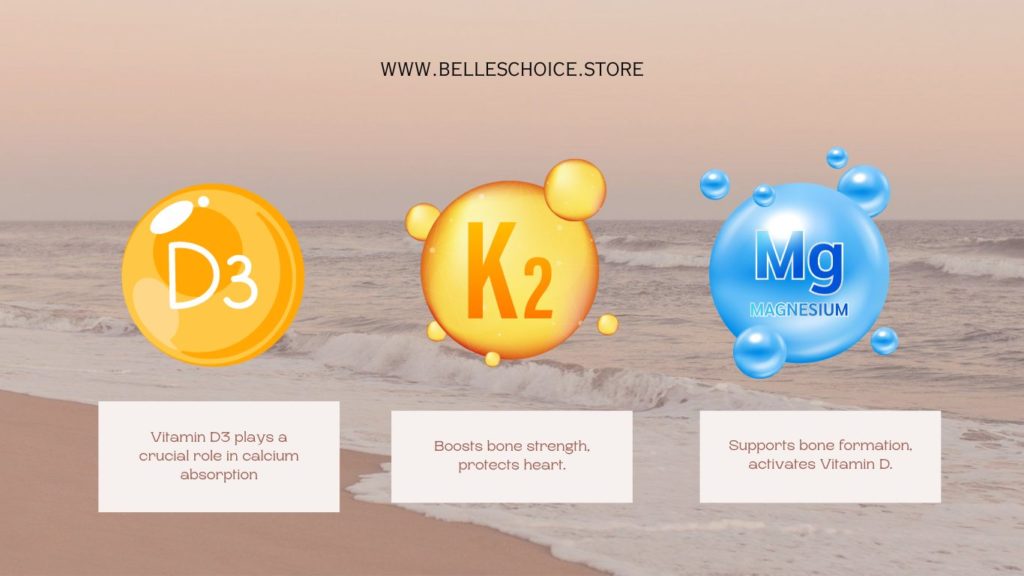
In the realm of bone health, calcium has long been the star of the show, often touted as the go-to solution for maintaining strong and healthy bones. However, focusing solely on calcium is like trying to paint a masterpiece with only one color. Just as a palette of hues is necessary for creating a rich and vibrant painting, a combination of nutrients is essential for optimal bone health. This blog post delves into the critical roles of Vitamin D3, Vitamin K2, and magnesium, alongside calcium, in bone aging and health. It also highlights the potential risks associated with taking calcium in isolation.
The Symphony of Bone Health
Bones are dynamic structures that undergo continuous remodeling throughout our lives. This process involves the removal of old bone and the formation of new bone, and it’s influenced by various factors including diet, physical activity, and hormonal changes. The interplay between calcium, Vitamin D3, Vitamin K2, and magnesium is a cornerstone of this complex process.
Calcium: The Building Block
Calcium serves as the primary building block of bone tissue. It’s vital for maintaining bone density and strength. However, calcium’s effectiveness is significantly enhanced when it’s taken in tandem with other nutrients, particularly Vitamin D3, Vitamin K2, and magnesium.
Vitamin D3: The Facilitator
Vitamin D3 plays a crucial role in calcium absorption. Without adequate levels of Vitamin D3, our body’s ability to absorb calcium from the diet diminishes, rendering calcium supplements or dietary calcium less effective. Vitamin D3 ensures that calcium is absorbed efficiently and directed to where it’s needed most—in our bones.
Vitamin K2: The Director
Vitamin K2 goes a step further by not only promoting the incorporation of calcium into the bone matrix but also preventing calcium from depositing in places where it shouldn’t, such as the arteries and soft tissues. This unique ability makes Vitamin K2 a critical player in maintaining both bone and cardiovascular health.
Magnesium: The Support
Magnesium supports the conversion of Vitamin D into its active form, which, in turn, enhances calcium absorption and bone health. It also plays a role in activating the enzyme that helps produce new bone tissue. Moreover, magnesium is essential for the proper functioning of Vitamin K2, illustrating the interconnectedness of these nutrients.

The Risks of Calcium Monotherapy
Taking calcium without its essential partners can lead to unintended consequences. High doses of calcium supplements, taken in isolation, have been linked to an increased risk of heart disease and kidney stones. This is because, without the directing role of Vitamin K2 and the facilitation by Vitamin D3 and magnesium, excess calcium can deposit in the arteries and other tissues, leading to health complications.

Conclusion: A Balanced Approach
To maintain optimal bone health and support bone aging gracefully, it’s crucial to adopt a holistic approach that goes beyond calcium. Ensuring adequate intake of Vitamin D3, Vitamin K2, and magnesium, alongside calcium, creates a synergistic effect that promotes strong, healthy bones while minimizing the risk of adverse health outcomes. This can be achieved through a balanced diet, lifestyle modifications, and supplementation under the guidance of healthcare professionals. By embracing this comprehensive strategy, we can support our skeletal system effectively throughout our lives, paving the way for a healthier, more vibrant future.